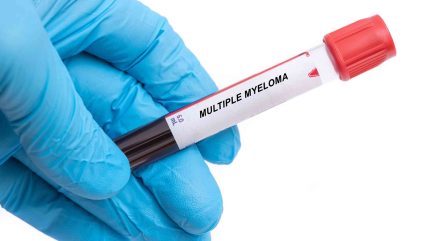
China’s National Medical Products Administration’s (NMPA) Center for Drug Evaluation (CDE) has granted breakthrough therapy designation (BTD) for GSK’s Blenrep (belantamab mafodotin) combined with bortezomib plus dexamethasone (BorDex) for the treatment of relapsed or refractory multiple myeloma.
The BTD aims to accelerate the development of treatments for severe and life-threatening diseases where there is a lack of existing treatments or where preliminary evidence indicates an improvement in patient outcomes over current treatment options.

Discover B2B Marketing That Performs
Combine business intelligence and editorial excellence to reach engaged professionals across 36 leading media platforms.
GSK research and development global head for oncology, senior vice-president Hesham Abdullah stated: “Breakthrough therapy designation in China underscores the potential for Blenrep to redefine outcomes for patients with multiple myeloma at or after their first relapse.
“We look forward to continuing to work with the health authority in China and others worldwide to bring Blenrep-based combinations to patients as expeditiously as possible.”
The BTD was granted based on the interim results of the Phase III DREAMM-7 trial, which met its primary endpoint.
As per an independent review committee, the primary endpoint is PFS.

US Tariffs are shifting - will you react or anticipate?
Don’t let policy changes catch you off guard. Stay proactive with real-time data and expert analysis.
By GlobalDataThe trial showed statistically significant and clinically meaningful improvements in progression-free survival (PFS) for belantamab mafodotin along with BorDex as against daratumumab plus BorDex in relapsed or refractory multiple myeloma.
At the time of the interim analysis, a positive overall survival (OS) trend was seen, although it was not statistically significant. Follow-up for OS is continuing.
The results also indicated clinically meaningful improvements across all other secondary efficacy endpoints as against the standard of care combination.
Key secondary endpoints include OS, duration of response and minimal residual disease negativity rate as evaluated by next-generation sequencing. Other secondary endpoints include overall response rate, safety and quality of life outcomes.
In the DREAMM-7 trial, the safety and tolerability profile of the belantamab mafodotin combination was in line with the known profiles of the individual agents.
The DREAMM-7 Phase III clinical trial is a multicentre, open-label, randomised study analysing the efficacy and safety of belantamab mafodotin in combination with BorDex as against a combination of daratumumab and BorDex in patients with relapsed/refractory multiple myeloma who previously received at least one previous line of multiple myeloma treatment, with disease progression recorded during or after their most recent therapy.
For the trial, a total of 494 participants were randomised at a 1:1 ratio to receive either belantamab mafodotin in combination with BorDex or a combination of daratumumab and BorDex.
Every three weeks, belantamab mafodotin was administered at 2.5mg/kg intravenously.
An antibody-drug conjugate, Blenrep consists of a humanised B-cell maturation antigen monoclonal antibody conjugated to the cytotoxic agent auristatin F through a non-cleavable linker.
The drug linker technology is licensed from Seagen, while the monoclonal antibody is produced using Potelligent Technology licensed from BioWa, a member of the Kyowa Kirin Group.
Blenrep is approved as a monotherapy in Hong Kong, Israel and Singapore.
Multiple myeloma is an increasing health concern in China, with 30,000 new cases diagnosed each year.




